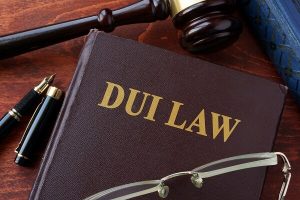DUI Defense Attorneys Protecting the Rights of New Mexico Drivers

It is essential to know how to act at a DUI checkpoint. Failing to comply with police officers at these checkpoints could result in an arrest – so it is equally important you know your rights and what police officers are allowed to do.
Are DUI Checkpoints Legal in Albuquerque?
DUI checkpoints have become a controversial topic. While some states have deemed them illegal, the state of New Mexico is not one of them. Therefore, law enforcement has the right to set up these checkpoints throughout the state.
A decision in 1990 by the U.S. Supreme Court ruled that the state’s concern and ability to protect the public from drunk drivers outweighs any concerns over reasonable suspicion and invasion of privacy. While some argue that these checkpoints go against the 4th Amendment, the Supreme Court says DUI checkpoints are legal under the circumstances, and the U.S. Centers for Disease Control and Prevention found they have reduced drunk driving accidents.
Therefore, if you are stopped at a checkpoint and think you can argue your 4th Amendment rights, you would be wrong.
What About Reasonable Suspicion Requirements?
In most DUI cases, a police officer can only stop a vehicle when they have reasonable suspicion. If the officer has reasonable suspicion a crime has occurred, then they can test the motorist for blood alcohol levels (BAC). Therefore, every DUI arrest must start with reasonable suspicion.
So, how does that work when the officers at a DUI checkpoint stop everyone – whether there is reasonable suspicion or not?
Typical Examples of Reasonable Suspicion for DUI Stops
In most DUI arrests, the officer justifies his or her stop by showing the reasonable suspicion act, such as:
- The driver swerves in and out of the lanes.
- The driver continually stops for no reason.
- The driver is speeding or driving too slow for the speed limit.
- The driver is erratic and has almost caused an accident.
Probable Cause vs Reasonable Suspicion: How Does It Differ?
Many criminal defendants confuse reasonable suspicion and probable cause. Reasonable suspicion gives officers the right to stop a motorist for a DUI check and investigate further.
Probable cause, on the other hand, is what is needed to arrest someone. An officer cannot argue probable cause without evidence that the driver has committed a crime. Therefore, reasonable suspicion is a lower standard that is more easily met than probable cause.
Does a DUI Checkpoint Have Sufficient Probable Cause?
Most states feel that DUI checkpoints are not a violation of a person’s 4th Amendment rights. The reasoning here basically comes down to weighing priorities. While stopping the driver and requiring a breathalyzer test seems intrusive, the state’s need to prevent drunk driving has been held by the U.S. Supreme Court to outweigh a person’s privacy rights.
Therefore, at a DUI checkpoint, reasonable suspicion or probable cause are not needed.
However, police still need reasonable suspicion to search your car. So if you fail the field sobriety or breathalyzer test at the checkpoint, that may give them enough reasonable suspicion to legally search your vehicle for further evidence.
Officer Responsibilities for DUI Checkpoints
Officers have responsibilities at these DUI checkpoints. If they fail to meet these obligations, the court may throw out the DUI arrest.
Some responsibilities include:
- Stopping Every Vehicle: To keep the checkpoint fair, officers must stop and test every single vehicle passing through the checkpoint. When officers selectively pick drivers through the checkpoints, they may be accused of bias or profiling.
- Treating Each Suspect Fairly: Despite the rights given to officers at these checkpoints, they still must treat each person they encounter fairly. Officers must administer the tests without bias, and only arrest a person if they have probable cause to do so.
- Searching Vehicles When Necessary: Officers cannot stop and search every vehicle at the checkpoint. Instead, they can only search a car if they have reasonable suspicion. Therefore, if you pass your field sobriety and have a negative breathalyzer, officers have no justification for searching your car.
Motorist Responsibilities at DUI Checkpoints
At a DUI checkpoint, you must act responsibly as well. Some duties you encounter as a motorist passing through these stops include:
- Treating Officers with Respect: You might be a few minutes late to your New Year’s Eve festivities, but being combative and refusing to cooperate with officers will end up in an arrest for obstruction of justice – or possibly a DUI if you later test positive for drugs or alcohol. Remain calm, answer questions politely, comply with any requests, and you will be on your way much faster than arguing with officers over everything.
- Go through the Checkpoint: If you pull up to a checkpoint, do not turn around and try to go another route. Purposely avoiding an inspection is enough reasonable suspicion for officers to chase you down and stop you. Once you are in a checkpoint, you must complete the process.
Arrested for a DUI? Contact a DUI Attorney in New Mexico Today
If you or a loved one was arrested for a DUI at a checkpoint or during a traffic stop, it is crucial you hire a defense attorney right away.
Speak with a team member from New Mexico Criminal Law Offices today. We offer a free, no-obligation case evaluation and all consultations are confidential. Schedule your appointment at 505-375-4664 or request an interview online.

